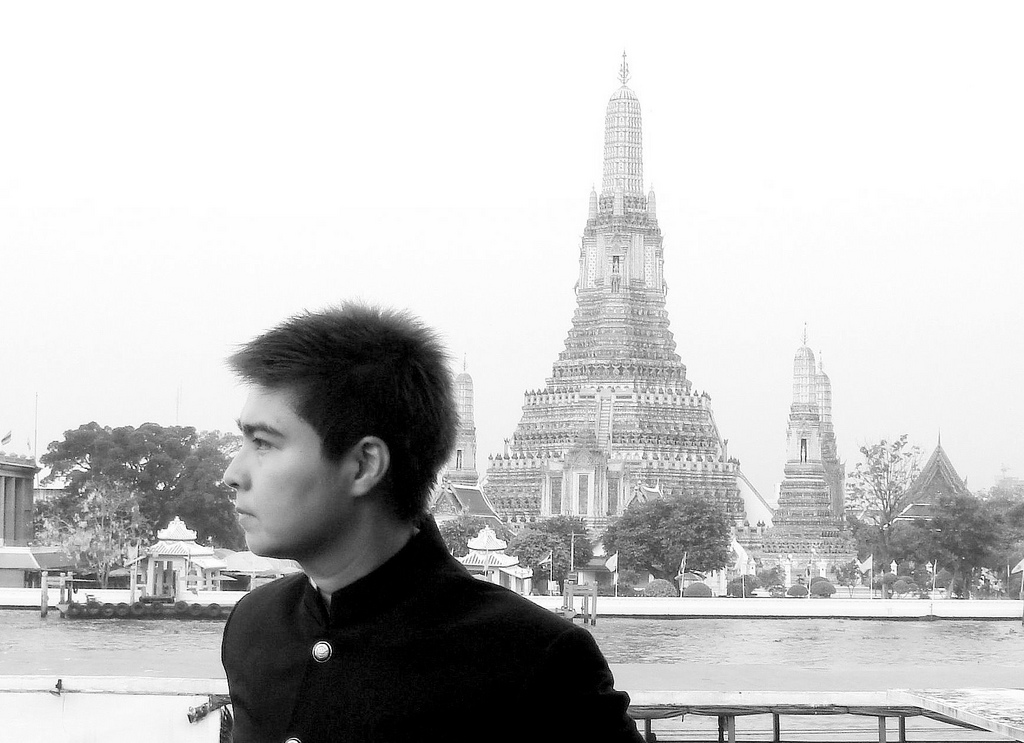Two weeks ago in this column, we talked about the fairy-tale life of our friend Collette, who, like many contemporary Thais, has subconsciously suffered deep-rooted depression stemming from the political hullabaloo of the last few years.
Having led a perfect life before the depression hit, Collette did not realize what she had been missing until she went to a mindfulness meditation retreat. What happened afterwards was a pure miracle. Until the day of this writing, Collette still enjoys her daily surprises in the form of flashes of wisdom as she goes on living her busy life happily, thanks to her faithful, 30-minute-a-day walking and sitting meditation practice.
What is more surprising, to the author at least, is the amount of feedback the author received from that article on Collette's life. Some found it inspiring, saying it made them even more curious and interested in going to a retreat themselves. Some who have already gone to the retreat forwarded that article to their friends who have yet to do so. Some wondered if this fairy tale would be really possible for everyone. Others mused how long this "honeymoon period" of our protagonist would last.
Honestly, these questions sound pretty much like the 'Frequently-Asked Questions' (the FAQs) the author and those who have gone to a retreat always received in our daily life. M ay be it is a good idea, then, to answer them here for the benefit of all readers.
Is such an amazing experience possible for all?
Yes. Seriously. And this is the most amazing thing about the miracle of mindfulness meditation. The practice is pretty straightforward: you reap what you sowed. And, like we discussed two weeks ago, the author's friend did give 100% of her effort during the retreat.
Come to think about it, may be she actually gave 150% and, consequently, received such an enviable result! As someone who enjoys a good life (meaning a gourmet's life) who is approaching the so-called 'golden age,' Collette has a slight physical challenge regarding sitting on the floor, even with supporting cushions. As a result, she sustained more discomfort, not to mention more of the occasional meditation-induced pain, than most of us.
The highest wisdom in Buddhism, it should be noted, starts with one's ability to see the nature of suffering and understand it. Fortunately for Collette, what she initially perceived as her drawback turned out to be her blessing in disguise. For it was through her pain that her first true flashes of wisdom arose. A very defining moment, it propelled her to a higher state of mind, a state that enabled her to sit with the pain with a smile. Right from that day until the end of the retreat.
Looking back, Collette said she realized that the pain-conquering experience alone is such an invaluable life asset. She now knows how to handle any physical or mental challenges in her life, right into the very last days of it. Having seen grandparents and older relatives in their last moments, Collette knew how dreadful the pain for the terminally ill could be. When one becomes very ill with the kind of pain that modern medicine can no longer help, it is this very skill, mindfulness meditation skill, that we humans need the most.
Before going to the retreat, Collette never knew that, like everybody before her who gave 100%, she also has the capability to cultivate this valuable pain-conquering skill. If the author had told her that she could acquire that in seven days, Collette would probably have said the author was crazy. Now it is Collette who enjoys telling her family and friends of that defining moment of hers, the moment she gained wisdom through the pain.
The lesson of this story is, do not worry that your physical condition may be a hindrance to your chance to gain wisdom from meditation. For each one of us, there would be the most suitable conduit through which the Dhamma would occur. For Collette, it happened to be through a pain that was heightened by her physical condition. What would yours could be? Don't you want to find out?
How long would the "honeymoon" last?
There are two aspects of the meditator's "honeymoon period" that the author would like to address. First, the meditation-induced "high" or various kinds of Piti or Vipassanupakilesa. Some positive, meditation-induced physical and mental phenomena could last days, weeks, or even months. Soon, the Dhamma would reveal itself, though, no "high" would last forever. And that would be when the value of the second aspect would shine.
The second aspect, the one that is more lasting, is the wisdom-induced peace of mind. While less stirring than the "high," it proves to be the more meaningful one of the two. This is especially true for those who continue to practice mindfulness diligently every day after coming out of the retreat, like our friend Collette does.
In other words, by repeating the techniques we learned from a retreat in our daily life, we are in essence re-living the retreat experience every day. This means more meditation-induced wisdom. Accompanying that unique type of wisdom is the state of mind that feels relieved and at peace. And this is the most difficult part to describe to those who have yet to go to a retreat.
It starts when the mind "knows." Knows what? You have to find out yourself in a retreat. It is something that no words can describe because it is truly beyond everyday cognitive experience. All the author could say is that what the mind knows would make you feel good unconditionally. Well, with the world currently in a state of both political and economic mess, nothing beats the ability to feel good unconditionally, dear readers. Just ask Collette.
Useful tip for "the returner"
Now, a useful tip for Collette herself and those like her, someone who just returned from their first meditation retreat. Tell people around you not to expect an angel! Most likely than not, no matter how unbelievably good the experience we might have had from our retreat, we are nowhere near the state of the Arahantship yet. This means we are still subject to experience the usual mental defilements, be it anger, disappointment, fear, desire, or any other mishaps. The difference is that we would be able to deal with it better and get over it faster, that is all.
The more we continue to practice, the better our "mindfulness engine" would be, meaning the faster we will get over those nasty moments and the better we can handle it. So, the next time you amaze those around you with your new-found "magic," be it with your incredible patience or your Zen-like calm, tell your wide-eyed audience that this skill is not definite yet. You still can't switch to the "enlightened-mode" on-demand, you can say, but you are enjoying every minute making progress towards that.
See you in two weeks. Until then, let us stay mindful.








